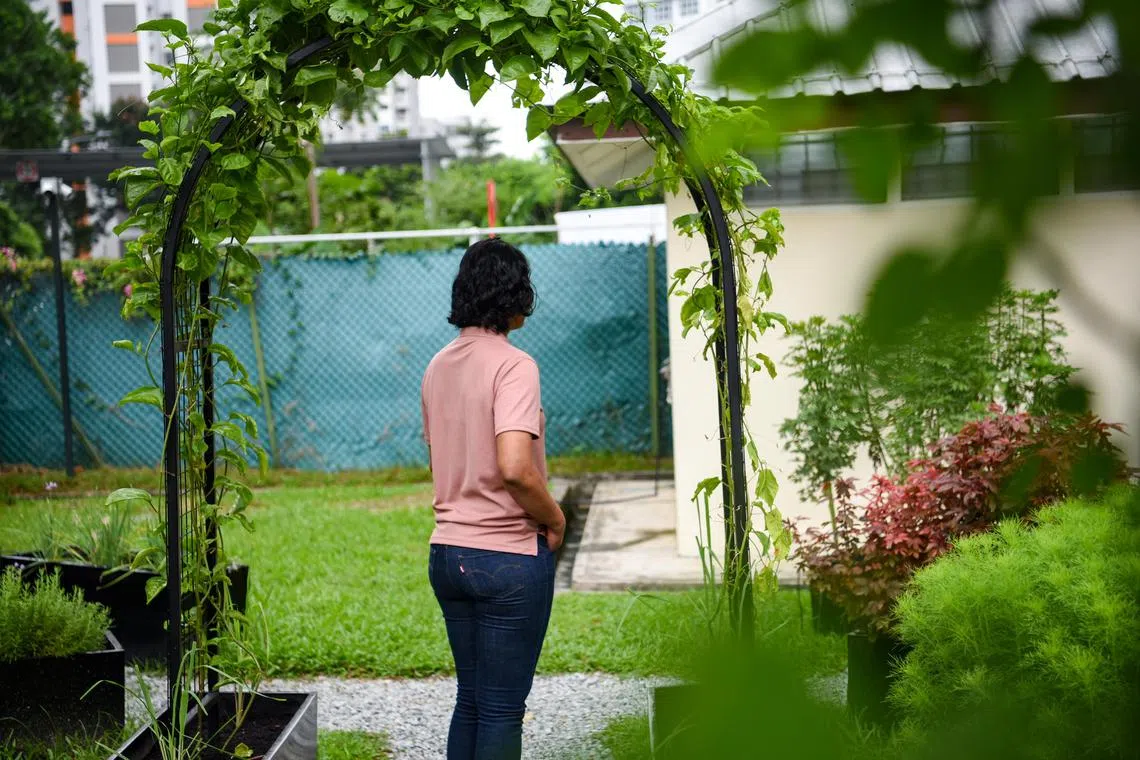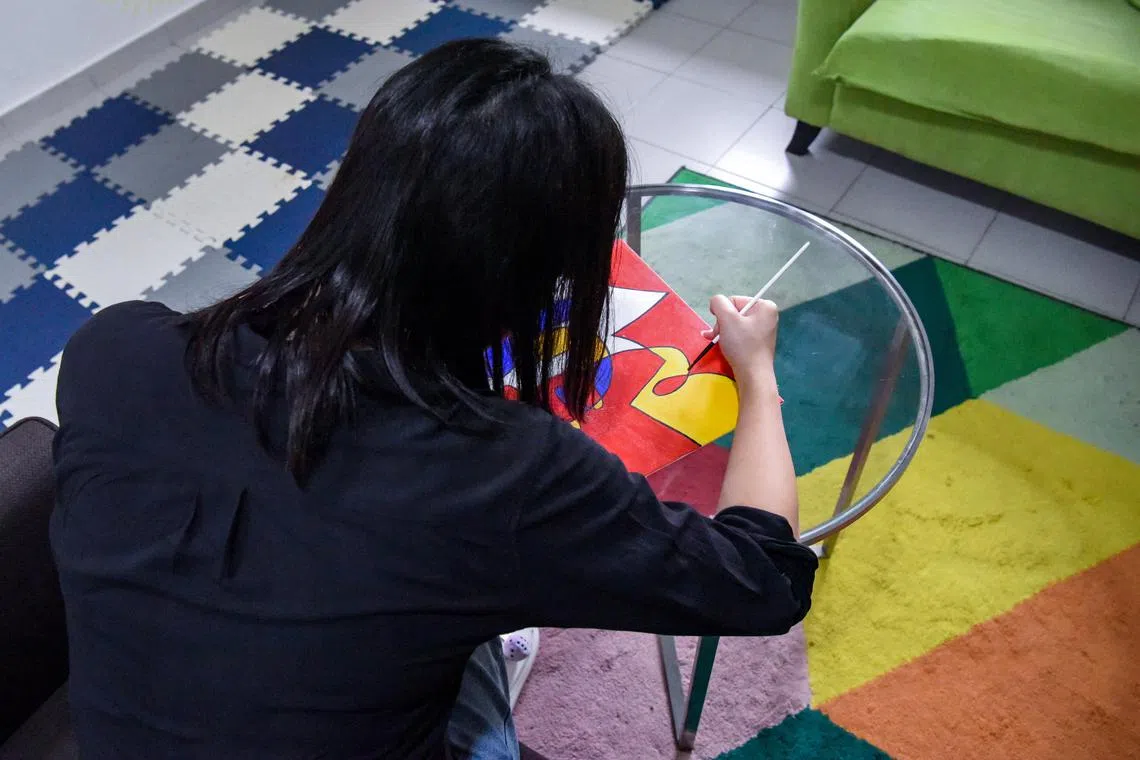Covid-19 made mother-of-two realise it was time to kick her drug addiction
Sign up now: Get ST's newsletters delivered to your inbox

Syasya dropped out of school at 13 to help her family cope financially, then mixed with bad company and became addicted to drugs.
ST PHOTO: EUGENE TAN
Follow topic:
SINGAPORE - On her 16th birthday, she tried drugs for the first time. And on her 18th birthday, she was arrested for the first time for drug consumption.
She was sent to drug rehabilitation centres (DRC) and prison eight times over the next few years for drug offences.
Then, the Covid-19 pandemic hit while she was behind bars.
Unable to help her elderly parents and two young children cope with the pandemic, she finally realised she had to stay away from drugs permanently.
Syasya (not her real name), 47, is a resident at Rise Above Halfway House in St George’s Lane, the first secular halfway house for women offenders undergoing community-based rehabilitation programmes.
Minister for Home Affairs and Law K. Shanmugam officially opened the women’s sanctuary on July 4,
As the eldest of four siblings, Syasya helped her parents care for them while growing up. She said she was very religious, having attended a madrasah.
She dropped out of school at 13 to help her family cope financially, then mixed with bad company and became addicted to heroin and Subutex.
Subutex was approved by the Ministry of Health in 2000 to treat opiate-dependent drug abusers, who became addicted to it instead. In 2006, the drug was reclassified as a Class A Controlled Drug.
On her time in prison, Syasya said: “Because of Covid-19, we weren’t allowed to have any visitors, so I couldn’t see my family at all. I prayed for forgiveness and asked God for a chance to see my family again. I had had enough (of drugs).”
As Rise Above residents are allowed to go out to work, Syasya is an outlet supervisor at a restaurant. Now going through a divorce, she had married at 30 and has two daughters, aged 16 and 17. Her husband was also a drug abuser.
A Rise Above spokesman said one of its goals is to help reintegrate residents into the workforce.
He said: “Syasya has been consistent in her resolve to do good since she came to Rise Above. She is often willing to take the advice of others that would benefit her.”
It was the same for former resident Wendy (not her real name), 26, who was from the pioneer batch at Rise Above in 2022.
The youngest of three siblings, she first became involved with drugs at 14, when her then boyfriend experimented with heroin and Ice.
She said: “I was just accompanying him at first – I didn’t know I was getting addicted (to drugs). But I started to consume drugs three to four times a week.”
Wendy was 16 when she was first arrested. She said she was suffering from depression at the time and undergoing treatment.
At 18, she was arrested again. She said she has been arrested three times for drug offences, with a string of toxic relationships being one reason for her drug use.
A former boyfriend prevented her from going home and would beat her when he was angry, said Wendy, adding that she turned to drugs to cope with her emotions.

Wendy said she has been arrested three times for drug offences.
ST PHOTO: EUGENE TAN
“My last ex-boyfriend was really manipulative. I had bailed him out when he was caught for drug offences, but he threatened to not turn up in court if I went home, so I would lose my bail money.”
This was the turning point for Wendy. “I thought about this while I was in prison. I’m young and I really want to change. I didn’t want to waste any more time,” she said.
Now working as a sales representative, she spends her spare time with her family and in church. She hopes to finally get her driving licence and save enough money so she can travel.
Said the halfway house spokesman: “Wendy has learnt to appreciate the perspective of other people and consider the impact of her actions on others.”
The Central Narcotics Bureau’s 2022 annual statistics report
Syasya knows her mistakes have caused her family, especially her father, much suffering. He had not visited her since she was 18, when she was first sent to a DRC. But her time at the halfway house has allowed her to reconnect with him.
Syasya said: “When I finally saw him again, he was much older. He cried and told me to not leave him any more.
“I don’t think it’s too late to change. Now, I tell my parents and daughters I will never leave them again.”
Helplines
Drug Abuse Narcotics Anonymous Singapore: 8405-8432 (24 hours)
National Addictions Management Service hotline on 6732-6837 or use the anonymous Singapore Anti-Narcotics Association live chat
here
(Monday to Friday, 2pm - 9pm).TOUCHline (Counselling): 1800-377-2252 (Monday to Friday, 9am to 6pm)

